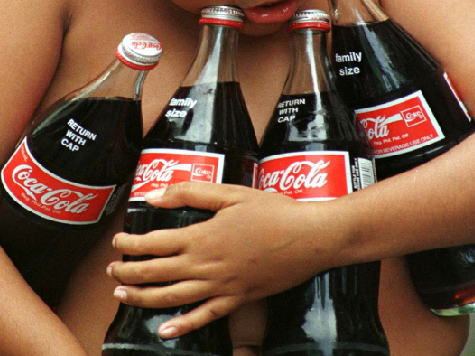
An Illinois State Senator from Chicago is proposing that the Land of Lincoln impose a new tax on sugary drinks to “solve obesity” in the state. However, few are greeting the proposal with open arms.
The tax (Senate Bill 3524) being proposed by Chicago area Democrat Senator Mattie Hunter would impose a tax of one cent per ounce, a cost that would add up quickly when buying in bulk. Even on a 16-ounce fountain drink, that would mean an additional 16 cents in taxes added onto the price for consumers. It would add $2.88 to the cost of a 24-pack of soda.
Senator Hunter is undaunted by costs. “Numerous studies have linked excessive consumption of sugary soft drinks to obesity,” Hunter said in statement to the press. “We as a state need to do a better job of educating the public and children in particular about this issue and the health risks.”
However, a group representing manufacturers, retailers, and even union workers says that the tax is not a good idea.
“You reduce consumption, and you reduce employment,” said Brian Rainville, a union spokesman. “If there’s less being made and distributed, there’s fewer people doing those jobs.”
“Politicians are always talking about creating middle-class jobs, and these are those jobs. These are the good, middle-class jobs that people want to create,” he said.
Senator Hunter is not much worried about job loss, though. She feels that the health benefits outweigh any economic losses. “Medical expenses associated with obesity cost taxpayers more than $100 million annually. My goal with this legislation is to increase awareness, improve public health and promote healthy living alternatives in an effort to save lives and money,” she said.
This proposal is also not sitting well with owners of convenience stores, especially those at the state’s outer edges. “It actually makes me mad,” said Moto Mart owner Rob Forsyth who owns a convenience store near the Illinois/Missouri border.
“This would be another big reason for people to take that trip over to Missouri and deliver their hard earned dollars to support jobs and income in Missouri instead of their home state,” Forsyth said. “It just doesn’t make any sense.”
Beverage industry sources also note that soda taxes are not effective in reducing obesity rates. The 1992 tax on soda that was implemented in Arkansas, for instance, did nothing to alleviate obesity there. Since 1992, the state’s obesity rate has risen from 17 percent to 34. 5 percent.
New York famously had a soda debacle, too, when New York Mayor Michael Bloomberg’s soda ban was declared unconstitutional.
Soda bans and sin taxes have been coursing through state legislatures since the 1990s, with Utah, California, New York, Illinois, and many other states suggesting and then abandoning the idea when it proved to be unpopular.

COMMENTS
Please let us know if you're having issues with commenting.